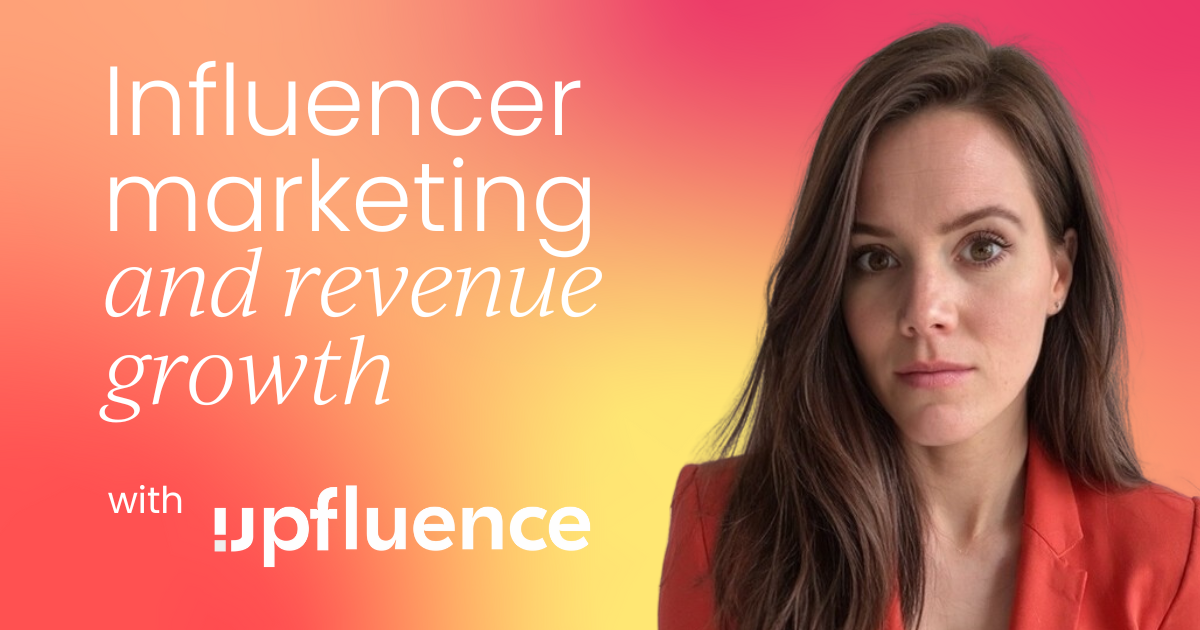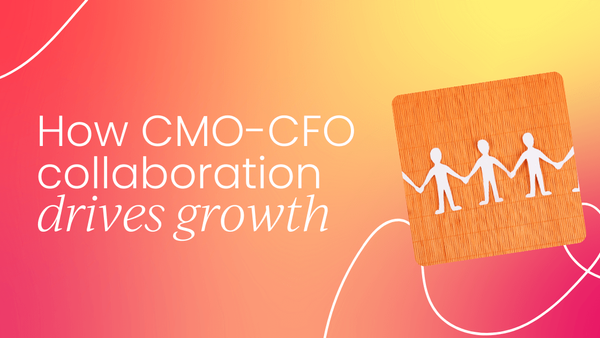According to the CMO Insights 2025 report, collaboration between marketing and finance has seen a decline, with only 35% of marketing leaders working regularly with finance, down from 42% the previous year.
This trend is concerning, as financial alignment is critical for marketing leaders to secure budget approvals, measure return on investment (ROI), and optimize spending efficiency.
Chief Marketing Officers (CMOs) and Chief Finance Officers (CFOs) traditionally have different priorities – while marketers focus on brand awareness, customer acquisition, and engagement, finance leaders prioritize profitability, cost control, and revenue growth.
However, when these perspectives merge, companies can develop data-driven marketing strategies that not only enhance customer engagement but also contribute to long-term financial stability.
The intersection between these two departments lies in aligning marketing investments with financial performance. While marketing drives demand generation and brand positioning, finance ensures that these efforts are cost-effective and yield measurable returns.
The impact of effective cross-departmental collaboration
Despite challenges, interdepartmental collaboration is improving overall. The report indicates that 37% of CMOs now find cross-departmental collaboration “very effective,” up from 29% in the previous year. Additionally, 33% describe it as “effective.”
This progress suggests that businesses recognize the importance of integrating marketing with other functions, including finance.
However, one of the most striking findings is that:
Given that finance plays an instrumental role in budget allocations and performance evaluations, a disconnect between CMOs and CFOs can lead to inefficient spending, missed opportunities, and misaligned priorities.
Beyond financial efficiency, effective collaboration between the CMO and CFO ensures that marketing strategies align with broader business objectives. When both leaders work closely together, they can:
Enhance budgeting accuracy
With CFOs providing financial insights and CMOs offering data on market trends and customer behavior, companies can allocate budgets more effectively and prioritize high-ROI activities.
Improve agility in decision-making
A strong partnership enables swift adjustments to marketing investments in response to economic shifts, competitive actions, or emerging opportunities.
Ensure transparency and accountability
Aligning financial and marketing goals ensures that spending decisions are justified with clear performance metrics, reducing the risk of budget cuts or misallocations.
Drive sustainable growth
By working together, CMOs and CFOs can develop strategies that balance short-term profitability with long-term brand equity, ensuring consistent revenue growth over time.
Optimize customer acquisition and retention costs
A data-driven approach combining marketing analytics with financial oversight helps businesses refine customer acquisition strategies while improving lifetime value.
The CMO-CFO dynamic in different business models
The nature of the partnership between CMOs and CFOs varies depending on the company's business model. Factors such as sales cycles, budgeting strategies, and industry-specific challenges influence how these two roles interact to drive growth and profitability.
B2B vs. B2C: Differing financial and marketing priorities
In Business-to-Business (B2B) and Business-to-Consumer (B2C) models, the dynamic between CMOs and CFOs takes distinct forms:
B2B companies
These organizations often have longer sales cycles and rely heavily on account-based marketing (ABM).
The CFO must work closely with the CMO to ensure that marketing investments align with the extended sales process and lead nurturing strategies. Measuring ROI can be more complex, as deals may take months or even years to close.
B2C companies
Consumer-focused businesses prioritize customer acquisition, brand awareness, and conversion optimization.
Marketing strategies often involve high-volume advertising, digital campaigns, and customer retention efforts.
The CFO needs to allocate budgets effectively to ensure that spending on customer acquisition yields sustainable profitability and long-term brand loyalty.
Startups vs. enterprises: Balancing agility and scale
Company size and stage of growth also significantly impact how CMOs and CFOs collaborate.
Startups
In early-stage companies, agility is key. Startups require flexible budgeting to accommodate rapid pivots, experimentation with marketing channels, and fluctuating revenue streams.
CFOs must work with CMOs to ensure that investments in marketing generate immediate impact without jeopardizing financial stability.
Enterprises
Established corporations focus on scalability and sustained profitability. Large enterprises require structured financial planning, with marketing investments optimized for long-term brand equity and market penetration.
CMOs and CFOs in these settings work together to allocate substantial budgets strategically, balancing short-term performance with long-term brand-building.
Industry-specific challenges: Tailoring the CMO-CFO collaboration
Different industries have unique dependencies between marketing and finance, requiring tailored collaboration models. Here are a few examples:
Retail: Profit margins and sales performance are directly linked to marketing efficiency. CFOs must ensure that marketing spend aligns with seasonal demand fluctuations, inventory levels, and consumer behavior trends.
SaaS (Software as a Service): Subscription-based businesses require a deep focus on customer lifetime value (LTV) and customer acquisition cost (CAC). CMOs and CFOs must collaborate to balance aggressive growth strategies with sustainable financial planning.
Healthcare: Regulatory constraints and ethical considerations impact marketing strategies in the healthcare industry. CFOs and CMOs must navigate compliance challenges while ensuring effective patient engagement and brand trust.
The role of data in strengthening CMO-CFO collaboration
Data serves as the critical bridge connecting marketing and finance departments, enabling both teams to make informed decisions that align with broader business objectives through shared analytics platforms.
The foundation of this connection lies in unified metrics and dashboards, which provide both CMOs and CFOs access to the same performance data, fostering transparency and accountability across departments.
Modern predictive analytics, powered by artificial intelligence, further strengthens this relationship by generating insights that help forecast marketing ROI and enable CFOs to make data-driven budget allocation decisions.
This analytical approach extends to customer lifetime value tracking, which provides a comprehensive view of long-term profitability across different customer segments. When understanding these patterns, organizations can better justify marketing expenditures and demonstrate their impact on sustainable business growth.
Navigating cross-departmental challenges
When surveyed about interdepartmental collaboration challenges, 16% of CMOs identified finance as a significant pain point. While this percentage falls below both sales (43%) and product (30%), it underscores an important area for improvement in organizational dynamics.
The fundamental challenge stems from the distinct languages and metrics used by marketing and finance teams.
CMOs typically focus on customer engagement metrics like lead generation and conversion rates, while CFOs prioritize financial indicators such as profit margins and cash flow. This disconnect can create friction in decision-making and resource allocation.
To connect this gap and foster stronger collaboration between marketing and finance departments, organizations can implement a few key strategies:
Cross-functional training
Develop programs that educate marketing teams on financial principles while teaching finance teams about marketing KPIs, creating a foundation of shared understanding.
Regular joint strategy sessions
Schedule consistent meetings between departments to align expectations, share insights, and address challenges proactively rather than reactively.
Integrated technology solutions
Deploy shared digital platforms that facilitate real-time communication, streamline reporting, and create a single source of truth for both departments.
Implementing these approaches can help work toward a unified framework that balances financial efficiency with customer impact, ultimately leading to more effective cross-departmental collaboration.
Final thoughts
Gone are the days when marketing and finance could operate in separate corners of the building.
The reality? CMOs and CFOs are discovering they're better together than apart. Sure, there are still some growing pains – like when marketing wants to bet big on a bold campaign while finance reaches for the calculator.
But here's the thing: companies are finally getting it right. When marketing dreams and financial smarts come together, magic happens. The numbers tell better stories and the stories drive better numbers.
And in today's rollercoaster economy, businesses that get these two powerhouses working in sync aren't just surviving – they're actually thriving.
It turns out the secret sauce isn't choosing between bold ideas and smart spending – it's having both.






.png)









 Follow us on LinkedIn
Follow us on LinkedIn




